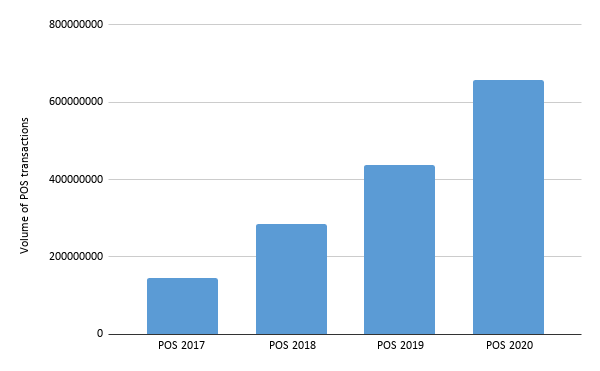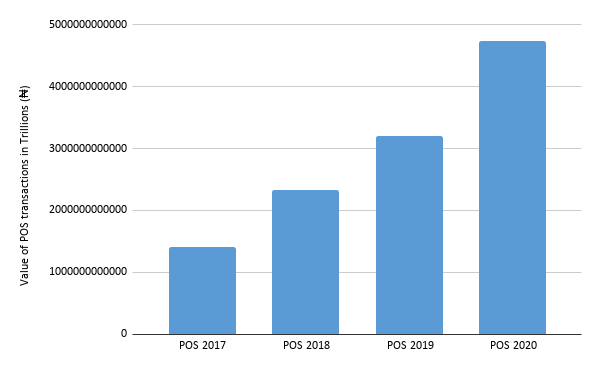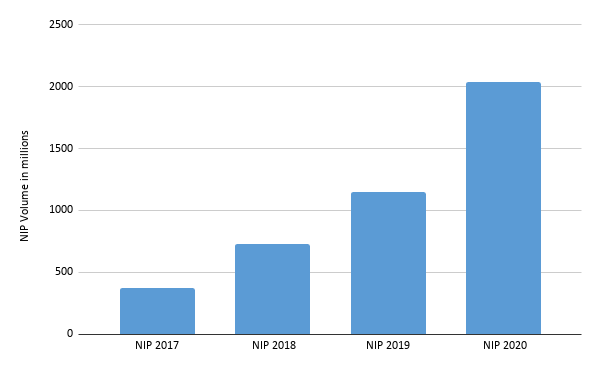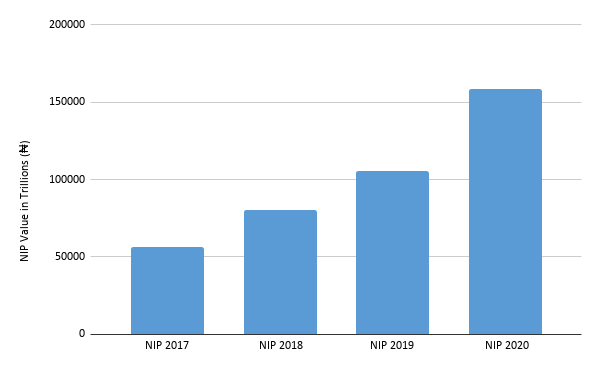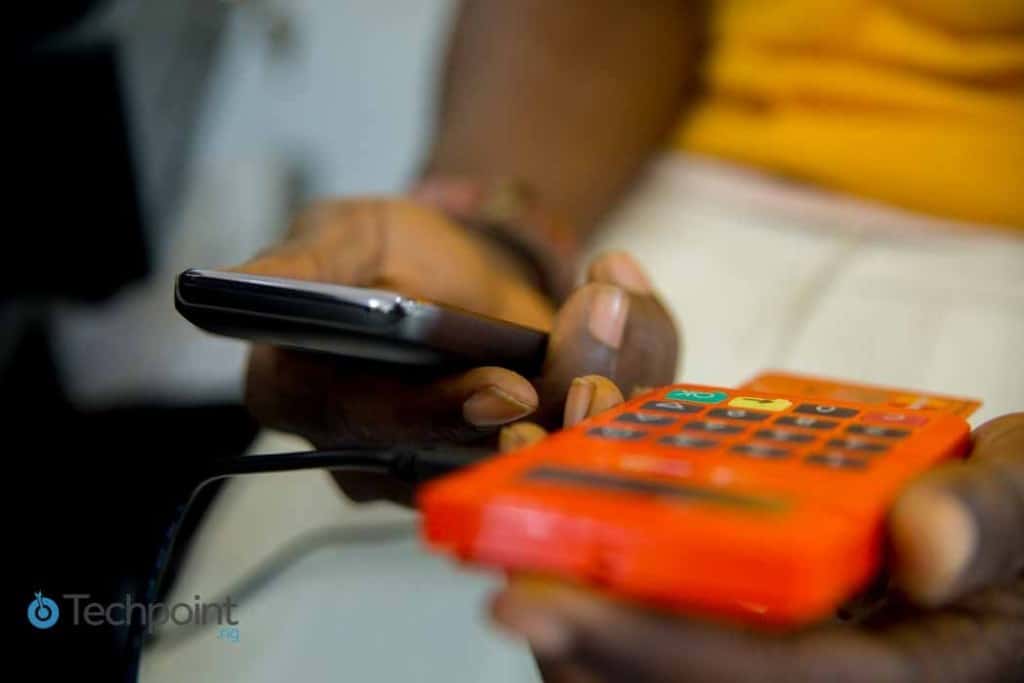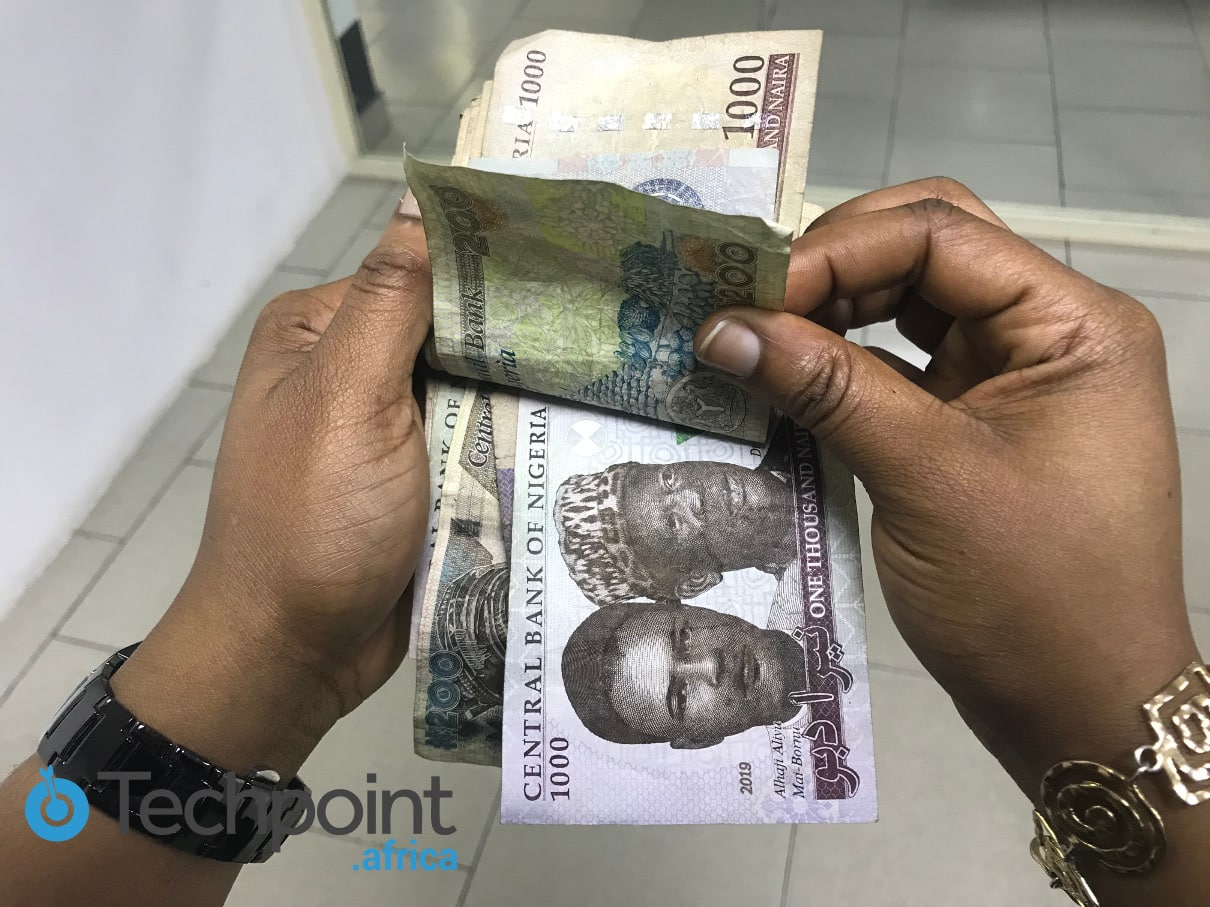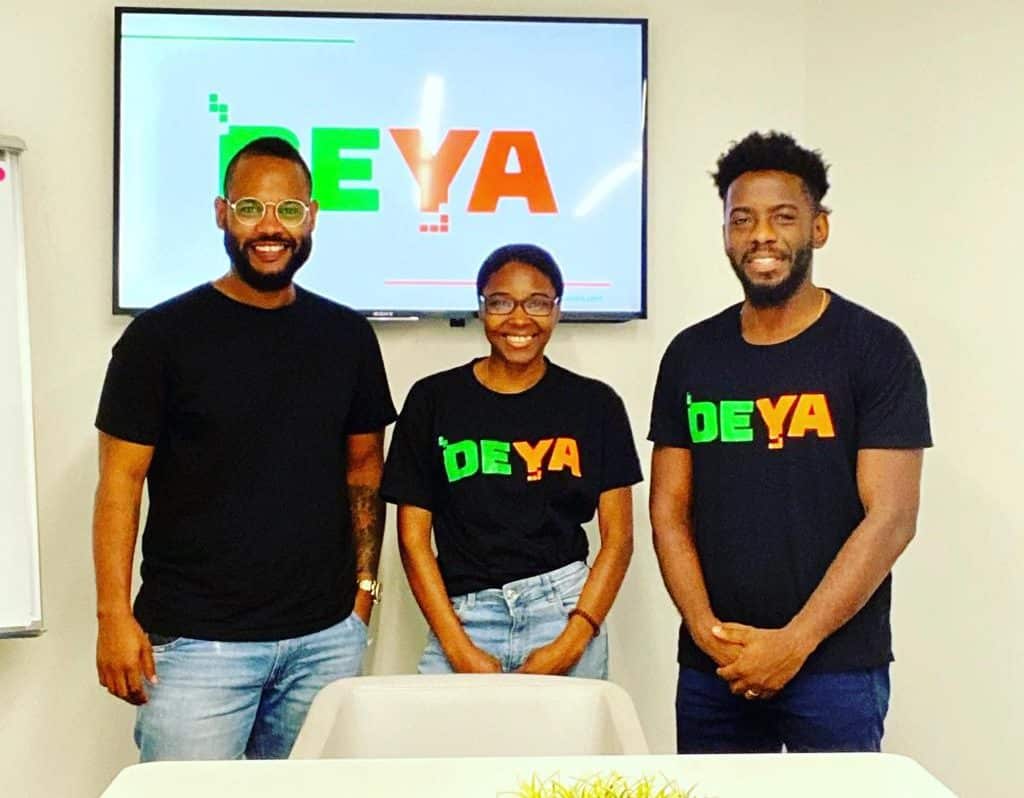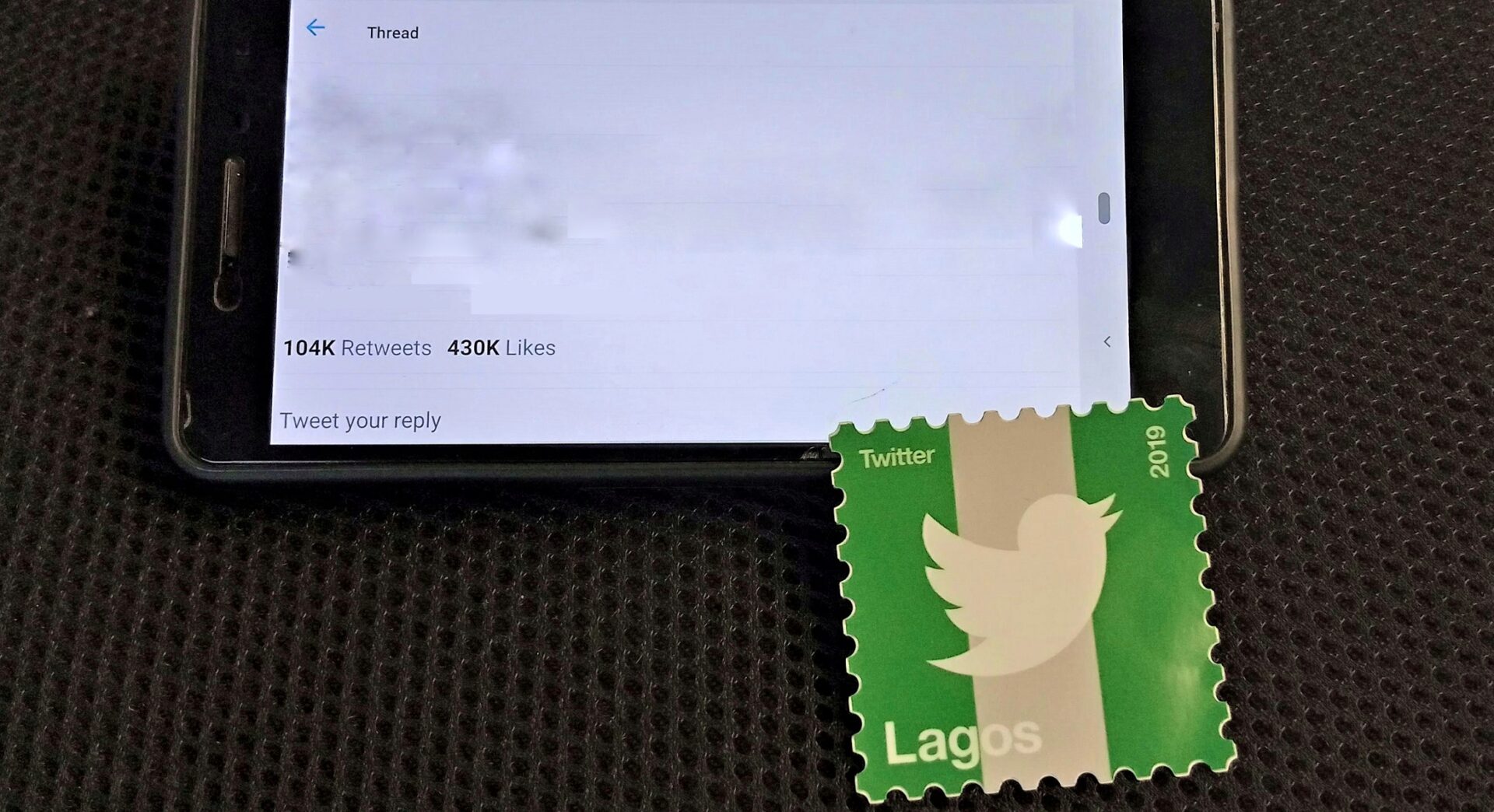Editor's note [14th January at 9:30pm WAT]: Original headline edited to accurately capture what the NIBSS figures represent – a spike in e-transactions, as opposed to cashless transactions (which are difficult to track).
In 2020, the coronavirus pandemic disrupted several business and social activities. Though electronic transactions took a hit when the Nigerian government implemented a lockdown, they rebounded almost immediately with electronic transactions reaching an all-time high in December 2020.
According to data from the Nigeria Inter-Bank Settlement System (NIBSS), in 2020, Nigerian merchants and mobile money operators processed over 655 million point of sale (POS) transactions valued at ₦4.7 trillion ($13 billion). This number presents a 50% increase from 2019.
Recall that during Nigeria’s lockdown in April 2020, NIBSS Instant Payments (NIP) transactions fell by ₦3.8 trillion ($10 billion) and POS transactions by ₦96 billion ($252 million). While this drop was consistent with the trend in the past four years, the huge amount could be attributed to a decrease in purchasing power.
Based on reported figures from the likes of OPay and TeamApt, agency banking was immensely successful in 2020, despite the arrival of COVID-19. More POS terminals were registered, and more merchants seemed to embrace cashless payments due to the pandemic.
In 2020, total inter-bank transactions reached a record high of two billion valued at a whopping ₦158 trillion ($415 billion). Besides the notable dip in April, Nigerian financial institutions witnessed growth in monthly transactions before a predictable spike in December 2020.

Don't miss out on Africa's financial revolution
Give it a try, you can unsubscribe anytime. Privacy Policy.
December remains the main attraction
In January 2020, Adedeji Olowe, fintech expert and trustee of Open Banking Nigeria, predicted that monthly inter-bank transactions would hit 300 million. The monthly figures increased to almost hit the predicted mark.
2020 began with a dip in the volume and value of inter-bank and POS transactions in January as they dropped from 126 million to 111 million and 46 million to 41 million respectively.
This is a yearly occurrence as the increased spending during the holiday in December results in subdued spending in January. Some Nigerian salary earners receive their salaries before Christmas, and by the close of new year celebrations, figures show a dip in transactions.
Electronic transactions began to bounce back in February, and by March 2020, Nigerian financial institutions processed over 135 million NIP transactions and 52 million POS transactions.
A massive rebound to 141 million NIP and 48 million POS transactions in May followed the dip in April when Nigeria gradually eased its lockdown. And while the volume in March was significantly less than May, the former’s transactions were of a much higher value.
Between July and September 2020, the value of NIP transactions hit ₦44.2 trillion ($116 billion) and we broke down the numbers in this piece.
In October 2020, NIP transactions crossed the 200 million mark (205 million), and POS hit 68 million transactions. In December, inter-bank transactions hit 264 million with a value of ₦20 trillion ($52 billion), and POS hit 77 million transactions valued at ₦574 billion ($1.5 billion).
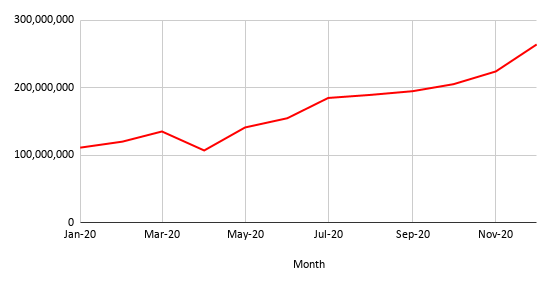
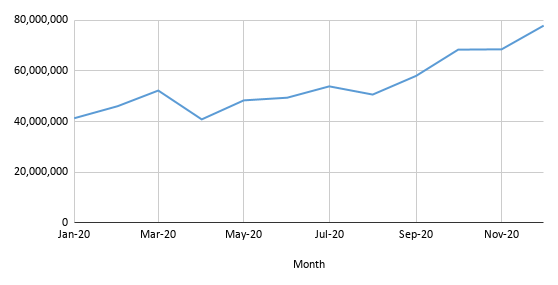
Why do these figures matter?
A growth in cashless transactions and a shift from cash-based payments could save Nigeria billions of naira and possibly generate huge revenues.
Recall that banking agents use POS and accept transfers when customers want to withdraw cash. So it might be a little bit more difficult to determine which transactions were truly cashless.
The Central Bank of Nigeria (CBN) still spends ever-increasing billions of naira printing cash despite repeated policies to drive cashless adoption. Some of these included driving down the cost of electronic transfer charges.
However, most Nigerian adults still do not have access to a bank account. The majority of cashless transactions are concentrated in popular urban areas like Lagos, Port Harcourt, and Abuja.
Since the NIP launch in 2011, electronic transactions in Nigeria have significantly improved, and fintech experts like Sola Fanawopo claim that Nigeria’s payment structure rivals the world’s best. But Nigeria remains a predominantly cash-based economy.
Hakeem Adeniji-Adele, eTranzact Deputy Managing Director, attributes this to people’s culture. Though cashless payments have blossomed in Kenya with M-Pesa, Adeniji believes it will be difficult to replicate Kenya’s success in Nigeria.
While telecom services providers have bid for a Payment Service Banks (PSB) licence, its provisions do not offer much beyond increasing the number of people with a bank account. It also presents a tough challenge for any licensee.
Olowe insists that MTN getting the licence could change the game for everyone in the industry. Like Kenya’s Safaricom, MTN dominates the telecom industry on several fronts, and Olowe argues that its new CEO will successfully lead its quest to dominate the payment space.
For now, we can expect even more electronic transactions and possible benefits to the economy. Also, not having to touch cash could greatly prevent the spread of COVID-19. частный займ под расписку москвазайм vivusзайм у частного лица онлайн


